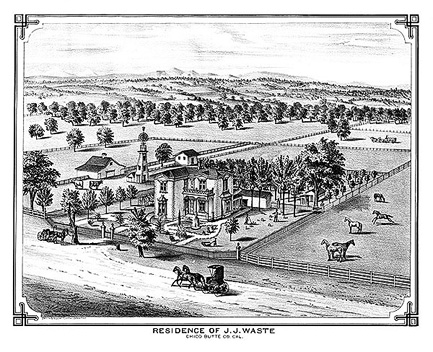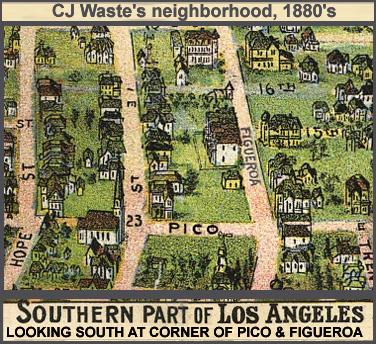William Harrison Waste
|
Birth: Oct. 31, 1868 in Chico,
Butte Co., Calif. |
|
Death: June 6, 1940, Berkeley,
California |
|
California
State Supreme Court |
|
Fifty-Ninth Justice,
November 14, 1921 - January 1, 1926 |
|
Twenty-First Chief
Justice, January 1, 1926 - June 6, 1940 |
William Harrison
Waste
"Born on a farm near Chico, California,
on Halloween, 1868, the son of John Jackson and
and Mary Catherine (McIntosh) Waste, William Harrison Waste was
destined to be the third native Californian to become Chief Justice.
His father, a native of Kentucky, and his New York State-born
mother were pioneer immigrants. The father, scouting for his
party, rode a Kentucky thoroughbred all the way to California,
arriving in 1851. He remained at Sutter's Fort for a short time
before settling at Princeton, Colusa County, where he raised
cattle. Later he moved his family to the farm where Waste was
born. His mother died six weeks after Waste's birth. Waste's
father then married Florence Maria Helphinstine and had four
children: Harry L., John M., Mabel E., and Jesse J. Waste. |

|
In accordance with the deathbed request
of his mother, Waste was taken to live with his uncle John and
aunt Mary Helphinstine in Chico. His "Uncle Johnnie"
was like a father to Waste until the uncle's death in Los Angeles
in 1885. His Aunt Mary lived with Waste in the family home until
her death in 1910, by which time she had seen her foster son
serving as a judge of the Superior Court for five years.
Waste received his elementary education
in the small one-room school near his Chico home. One source
described it as the proverbial "little red schoolhouse."
Waste himself attributed his first desire for knowledge to the
New England school-mistress, "Aunty Blake", who taught
him in elementary school. In 1882, when Waste was about thirteen,
his father died. After a short time Waste and his foster parents
moved to Los Angeles. Waste walked to school from his ranch home
in the open country near Pico and Figueroa Streets. |

|
Upon completing grammar school, Waste
entered the "old" Los Angeles High School, which had
some attributes now normal to universities as many of the students
moved from other towns to attend. This school was famous for
its spirit. The annual alumni ball, sponsored by the alumni association,
was organized the year before Waste moved to Los Angeles and
was one of the biggest social events of the town. In 1887, after
Waste's graduation, Los Angeles High School's football team that
beat the local college teams began to play and beat the University
of Southern California. |
|
Panoramic map of Los Angeles, published
in 1894. Click on the map to see a much larger version. |
|
Waste was interested in law at this
early date. When not in class because of split school sessions,
he and his high school friends frequently watched the proceedings
in Los Angeles courtrooms. The boys had their favorite trial
lawyers, much as many boys today have sports heroes. Returning
at the age of nineteen to northern California in September, 1887,
Waste, encouraged by an influential high school teacher, entered
the University of California at Berkeley, graduating with the
now rare degree of Bachelor of Philosophy in 1891. At this time
Waste lived with his Aunt Mary in a duplex on Durant Avenue.
Promptly entering Hastings College of Law, he graduated with
an L.L. B. degree in the spring of 1894.
Shortly thereafter he was admitted to the bar at the age of
twenty-five." |
|